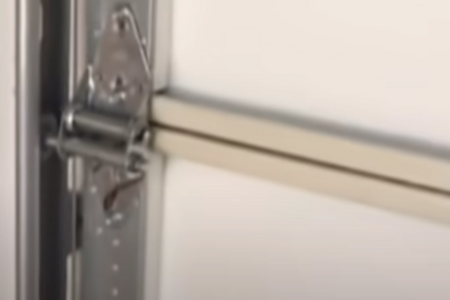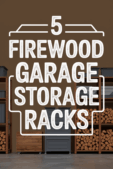Is Garage Door Maintenance Truly Necessary?

Your garage door does more than just open and close; it protects your vehicles, your home, and your family. While it’s easy to ignore it until something breaks, regular care is always much cheaper than a full replacement.
A common myth is that garage door maintenance is an unnecessary expense. Many homeowners believe they only need to call for a repair when a problem becomes obvious.
However, regular maintenance catches small issues before they become big, expensive problems. As industry experts confirm, annual maintenance extends the life of your door and prevents sudden, costly breakdowns.
Another misconception is that do-it-yourself maintenance is all you ever need. While some simple tasks like cleaning and lubricating are great for homeowners, more complex jobs require a professional.
Attempting advanced repairs without knowing what you’re doing can cause more damage or lead to serious injury. As experts at Raynor state, springs and cables are under extreme tension and should only be handled by a trained technician.
The High Price of Neglect: What Ignoring Your Garage Door Really Costs

A lack of maintenance often leads to expensive repairs or even the full replacement of your garage door system. At a minimum, you will spend money fixing a neglected door; in the worst-case scenario, you could spend thousands to replace it entirely.
Without proper care, critical parts like springs, cables, and rollers wear out quickly. This can lead to annoying malfunctions or complete, inconvenient breakdowns.
More importantly, a faulty garage door can become a serious safety hazard. An unbalanced or broken door can cause accidents and injuries if you don’t fix it right away.
Furthermore, an outdated or damaged garage door can hurt your home’s curb appeal. It can lower your home’s value.
Warning Signs: Your Garage Door’s Cry for Help

Your garage door will often tell you when it needs attention, long before it fails completely. Regular maintenance helps you spot these warning signs early.
Issues like wear and tear on springs, cables, rollers, hinges, and tracks can be caught during a simple inspection. These components are the backbone of your door’s operation.
Listen for unusual sounds during operation. Grinding or scraping noises are clear indicators that parts may be misaligned, lack lubrication, or are beginning to fail.
Look for loose bolts or screws around the hinges and brackets. The constant vibration of the door can cause hardware to loosen over time, making the door unstable.
Pay attention to the door’s balance. A door that slams down or is difficult to lift manually is unbalanced and puts immense strain on the opener, creating a dangerous situation.
Regularly checking these components, as recommended by major manufacturers like Chamberlain, is key to identifying problems before they get worse.
The Daily Grind: How Normal Use Leads to Wear and Tear

Using your garage door every day causes wear and tear. Over time, this can cause significant damage if you don’t perform routine maintenance.
The simple movements of opening and closing put a surprising amount of strain on the mechanical components. This stress can cause hardware to loosen and parts to wear down if not periodically checked.
The most common issues caused by daily use include broken springs or cables, worn-out rollers and hinges, and even damaged door panels or tracks. Each of these can lead to a garage door that is stuck open or shut.
These problems can cause a complete failure of your garage door system, making it impossible to operate safely. This is precisely why regular maintenance is so important for catching potential issues early.
Nature’s Assault: How Weather Takes a Toll on Your Door

Another major factor affecting your garage door’s performance is its constant exposure to the elements. Rain, snow, intense heat, and freezing cold all cause it to wear out.
Extreme temperatures can cause the metal components of your door to expand and contract. This subtle movement can lead to misalignment over time and keep it from running smoothly in the tracks.
Moisture from rain and snow is a primary enemy, leading to rust on metal parts like tracks, springs, and hinges. This corrosion weakens the components and can cause them to fail.
This type of damage is preventable with regular care. An annual cleaning is essential to remove corrosive road salt and grime.
Severe storms can also cause direct physical damage. Wind can throw rocks and branches at the door, leaving dents and scrapes that can damage the door’s protective coating.
Hidden Dangers: Critical Safety Systems You Can’t Ignore

Regular maintenance isn’t just about keeping your door in good working order; it’s vital for the safety of your family and property. A malfunctioning garage door is a significant risk that you should never underestimate.
Organizations like the Door & Access Systems Manufacturers Association (DASMA), which helps set industry safety standards, stress how important these safety features are.
Two issues, in particular, can create immediate danger: faulty safety sensors and an imbalanced door. Both require your immediate attention.

A balanced door will hang here without falling. The sensor shines across the entrance to warn that someone is under a closing door.
The safety sensor on an automatic garage door opener is a beam of light across the opening. If that beam is broken while the door is closing, the door should immediately reverse direction.
An imbalanced door, caused by faulty springs, can slam shut unexpectedly when disconnected from the opener. The immense weight of a garage door makes this a critical failure that can cause serious injury or property damage.
Addressing sensor and balance issues is best left to professional garage door services that understand the critical nature of these safety systems.
Step 1: Look and Listen for Trouble

Your maintenance routine should start with a simple look-and-listen. Regularly watching and hearing your garage door operate can help you catch problems before they become serious.
As you look it over, carefully check the springs, cables, rollers, hinges, and tracks. You’re looking for signs of fraying, cracking, rust, or other visible damage.
Take a moment to check for any loose bolts or screws, particularly on the door hinges and the track brackets. The door’s constant vibration can work these loose over time.
Next, pay attention to the sound of your door as it operates. Listen for any unusual grinding, scraping, or screeching noises that could signal a problem.
These sounds often indicate that parts need lubrication, are misaligned, or are beginning to wear out. For a detailed walkthrough of all maintenance steps..
Step 2: Lubricate Moving Parts and Tighten Hardware

Proper lubrication is a critical step that reduces friction between moving parts. This simple action dramatically reduces wear and tear, extending the life of your door’s components.
Before you start, check your owner’s manual for specific instructions on what type of lubricant to use. Generally, white lithium grease is for metal-on-metal contact, while a silicone spray is best for plastic or vinyl parts.
Apply lubricant to all moving parts, including the rollers, hinges, and torsion spring bearings. Be careful not to lubricate the tracks themselves, as this can cause the rollers to slip off.

Garage door hinge
While you’re there, tighten any loose hardware using a socket wrench. Securing roller brackets and bolts on hinges is an easy step that prevents instability and ensures the door operates safely.
Step 3: Clean the Tracks and Test Safety Features

With the door’s hardware lubricated and tightened, your next focus should be on the tracks and safety sensors. Dirt and debris are common culprits for a poorly operating door.
Take time to clean the tracks on both sides of the door. Leaves, dirt, and grime can build up, obstructing the rollers and causing the door to operate poorly or even jump off the track.
Use a damp cloth to wipe out the inside of the track, and a vacuum cleaner to clear away any loose debris. Ensure the tracks are dry before you operate the door again.
Next, test the auto-reverse safety sensor. Place an object like a roll of paper towels in the path of the door and press the button to close it.
The door should immediately reverse and go back up when the sensor beam is interrupted. If it fails, check for sensor misalignment or dirty lenses, but if that doesn’t fix it, call a professional immediately.
Step 4: How to Perform the Door Balance Test

The balance of your garage door is extremely important for safe, efficient, and long-lasting operation. An unbalanced door puts excessive strain on the automatic opener system, causing it to wear out prematurely.
Testing the balance is a task you should perform regularly. Start by disconnecting the opener from the door, usually by pulling the red emergency release cord.
Next, manually lift the door until it is about halfway open. A properly balanced door will stay in place, not drifting significantly up or down.
If the door shoots up or slams down to the ground, its springs are not properly tensioned. This creates a dangerous situation and requires immediate professional attention.
Never attempt to adjust the high-tension springs yourself. These components store enormous energy and can cause severe injury or death if handled improperly; this is a job strictly for trained technicians.
Setting Your Maintenance Clock: How Often is Enough?

The ideal maintenance frequency for your garage door can vary. Factors include the door’s material, its age, how often you use it, and your local climate.
As a general guideline, most manufacturers and service professionals recommend a yearly inspection and service by a professional technician. This ensures your door works safely and at its best.
Some doors may require more frequent attention. For example, heavy wooden doors may need more frequent checks for warping, while steel doors in salty air need regular cleaning to prevent rust.
You can also perform maintenance whenever you notice something is wrong. If you hear grinding sounds or the door seems hesitant, it’s time for an inspection.
A slow-moving door could indicate issues with the opener or springs. Similarly, if one side moves faster than the other, you may have an imbalanced door or a broken cable that needs to be fixed right away.
DIY vs. Pro: When Should You Call for Help?

When it comes to garage door maintenance, knowing what you can do yourself versus when to call a professional is key. While some homeowners can handle basic tasks, others are best left to the experts.
Garage door torsion springs are EXTREMELY DANGEROUS. Do not service these by yourself.
DIY tasks include visual inspections, cleaning the tracks, basic lubrication, and tightening accessible bolts. These require simple tools like a socket wrench, screwdrivers, and a quality lubricant spray.
However, DIY maintenance carries risks. The most significant danger comes from the high-tension springs and cables, which can cause severe injury if they break or are handled improperly. Never attempt to adjust, repair, or replace these parts yourself.
Hiring a professional brings expertise and safety. As professional services note, technicians can spot underlying problems before they become big, expensive problems.
Professionals arrive with all the specialized tools for the job, ensuring it’s done correctly and safely. Investing in an annual professional tune-up is a small price to pay for safety, reliability, and peace of mind.









